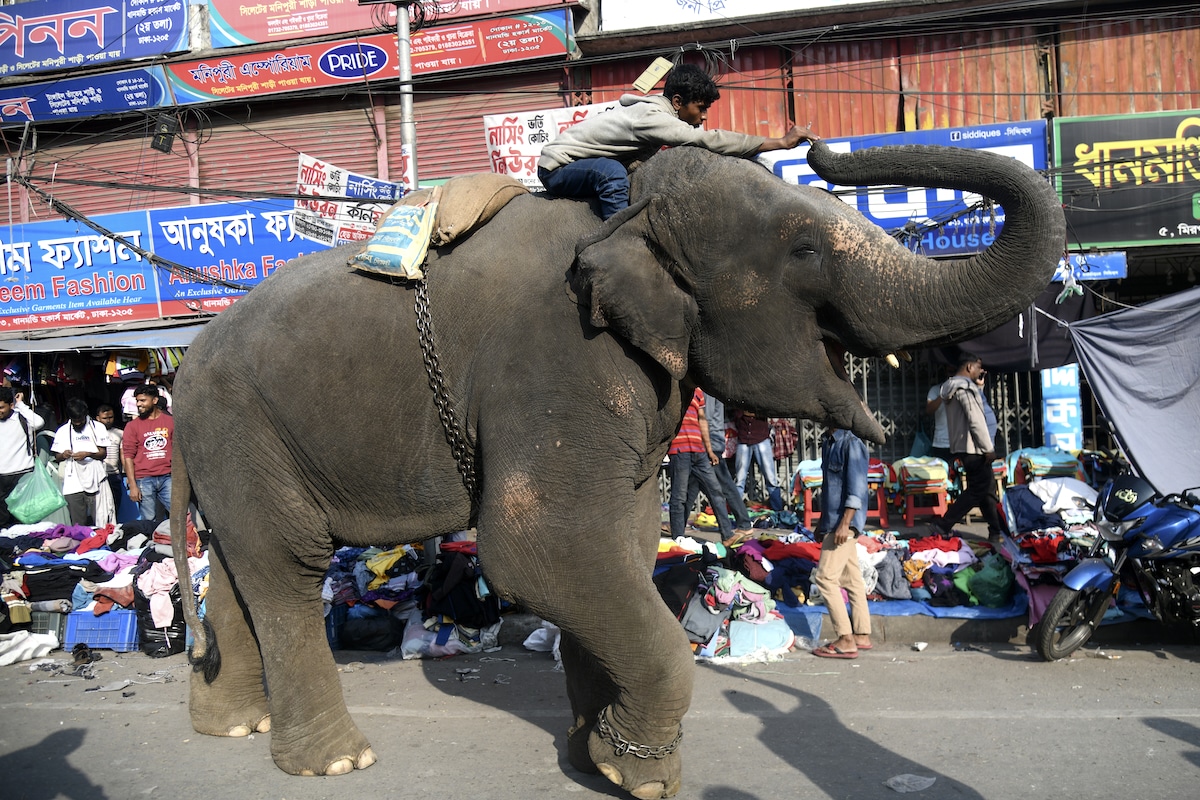A person riding a wild elephant takes money from its trunk during a street show in Dhaka, Bangladesh on Jan. 10, 2023. Syed Mahamudur Rahman / NurPhoto via Getty Images
Founded in 2005 as an Ohio-based environmental newspaper, EcoWatch is a digital platform dedicated to publishing quality, science-based content on environmental issues, causes, and solutions.
In a “landmark” ruling, Bangladesh’s High Court has suspended all licenses for the adoption of critically endangered wild elephants, meaning they can no longer be legally taken into captivity or exploited, reported the BBC.
The ban to protect the approximately 200 wild elephants remaining in Bangladesh was welcomed by animal rights groups. Nearly half the elephants are living in captivity, according to the International Union for Conservation of Nature, as WION reported.
“The high court today suspended all licenses for the captive rearing of elephants,” Amit Das Gupta, Bangladesh’s deputy attorney general, told AFP.
Some of the elephants have been covered in bright paint and forced to participate in street shows or circuses — which the court said broke the license terms — or in conjunction with solicitations for food and money, activities which Gupta referred to as “street extortion.”
“In this name of training elephants, private licensees including circus parties brutally separate elephant calves from their mother, shackle them for months and then torture them to teach tricks,” said Rakibul Haque Emil, head of Bangladesh’s People for Animal Welfare (PAW) Foundation, as reported by the BBC.
While Bangladesh was once a main habitat of Asian elephants, its population numbers have plummeted due to poaching and habitat loss.
Before the new ruling, licenses that were issued by the forestry department to logging groups who forced the elephants to haul logs allowed the elephants to be taken into captivity.
Emil expressed hope that elephants in captivity could be rehabilitated.
Jaya Ahsan, an actor and producer who brought the legal case along with PAW, said she hoped the ban would put an end to the cruel “training” — known as “hadani” — that had been inflicted on the elephants.
“This is a landmark order,” Emil said, as AFP reported. “We hope it is the end of hadani in Bangladesh.”
In May of 2023, a young elephant who had been exploited for street solicitation was struck by a train and died, pushing the dire state of captive elephants into the spotlight.
Two emaciated elephants who had also been kept captive were rescued by police in May of 2019 and put in the care of the Bangladesh National Zoo in Dhaka.
Emil indicated plans to rally support for captive elephant rehabilitation.
“Several countries in Asia such as Thailand and Nepal have found some success in rehabilitating captive elephants,” Emil said, as reported by AFP. “We shall do it here.”
Subscribe to get exclusive updates in our daily newsletter!
By signing up, you agree to the Terms of Use and Privacy Policy & to receive electronic communications from EcoWatch Media Group, which may include marketing promotions, advertisements and sponsored content.
